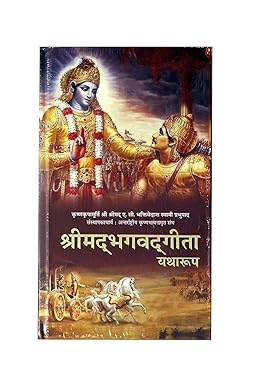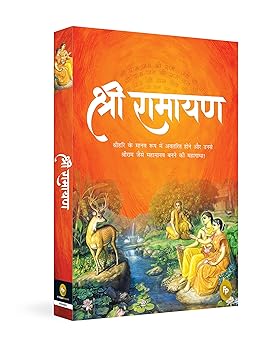-
Akshardham Temple: Located on the banks of the Yamuna River, the Akshardham Temple is a modern architectural marvel and a spiritual-cultural complex dedicated to Bhagwan Swaminarayan. It features stunning stone carvings, a large central monument, and beautiful gardens.
-
Lotus Temple: The Lotus Temple, also known as the Bahá'í House of Worship, is renowned for its lotus-shaped architecture. It's open to people of all faiths and is a tranquil place for meditation and reflection.
-
Laxminarayan Temple (Birla Mandir): This Hindu temple dedicated to Lord Vishnu and Goddess Lakshmi is built using white marble. It is known for its beautiful sculptures and a serene atmosphere.
-
Chhatarpur Temple: Located in the Chhatarpur area of Delhi, this temple complex is dedicated to Goddess Katyayani. It is famous for its South Indian architectural style and intricate carvings.
-
Kalkaji Temple: Dedicated to Goddess Kalka, this temple is one of the oldest and most revered in Delhi. It is particularly crowded during the Navratri festival.
-
Iskcon Temple (Sri Sri Radha Parthasarathi Mandir): This temple is dedicated to Lord Krishna and is part of the International Society for Krishna Consciousness (ISKCON). It's known for its grandeur and spiritual ambiance.
-
Hanuman Mandir (Connaught Place): Located in the heart of Delhi, this temple is dedicated to Lord Hanuman and features a colossal statue of Hanumanji. It's a popular destination for devotees and tourists alike.
-
Bhairon Temple (Prachin Bhairon Mandir): Situated near the Purana Qila (Old Fort), this temple is dedicated to Bhairon, an incarnation of Lord Shiva. It's known for its unique rituals and practices.
-
Digambar Jain Lal Mandir: This Jain temple is one of the oldest in Delhi and is dedicated to Lord Mahavira. It houses a bird hospital known as the Jain Birds Hospital.
-
Shri Digambar Jain Mandir (Naya Mandir): Another prominent Jain temple in Delhi, it's known for its stunning architecture and intricate artwork.
Overview of Famous Temples in Delhi
Introduction
Delhi, the capital city of India, is home to numerous famous temples representing rich cultural and religious heritage.
Historical Significance
Many temples in Delhi date back centuries and reflect architectural brilliance and historical importance.
Religious Importance
These temples are centers of devotion for Hindus, with rituals, prayers, and festivals celebrated throughout the year.
Geographical Spread
Temples are located across Delhi, from central areas like Connaught Place to suburbs like Dwarka and South Delhi.
Spiritual Practices
Devotees perform daily prayers, aartis, abhishekam, and participate in cultural and religious events at these temples.
Major Temples
Chhatarpur Temple
This large temple complex in South Delhi is dedicated to Goddess Katyayani and combines modern and traditional architectural styles.
Hanuman Mandir Connaught Place
A historic temple dedicated to Lord Hanuman, known for its vibrant aarti ceremonies and religious gatherings.
Akshardham Temple
A modern architectural marvel, Akshardham Temple is dedicated to Bhagwan Swaminarayan and showcases Indian culture, art, and spirituality.
Lotus Temple
Also known as the Bahai House of Worship, Lotus Temple is famous for its flower-like architecture and meditation environment.
Kalkaji Mandir
Dedicated to Goddess Kali, Kalkaji Mandir is one of Delhi's oldest temples and attracts thousands of devotees during Navratri.
Architecture & Cultural Heritage
Temple Architecture
Delhi's temples showcase a mix of traditional North Indian, Dravidian, and contemporary architectural styles.
Sculptures & Carvings
Intricate sculptures, deities, and mythological motifs decorate temple walls and sanctums, reflecting cultural richness.
Temple Complexes
Large temple complexes include sanctums, halls, gardens, and facilities for pilgrims and cultural events.
Cultural Significance
Temples preserve traditions, festivals, and rituals, forming the spiritual and cultural fabric of Delhi.
Preservation & Tourism
Efforts by authorities and devotees ensure temples are maintained while promoting cultural tourism.
Festivals & Rituals
Major Festivals
Temples celebrate festivals like Diwali, Navratri, Hanuman Jayanti, and Janmashtami with great enthusiasm and devotion.
Daily Worship & Aarti
Devotees attend morning and evening aartis, chant mantras, and perform rituals regularly.
Special Poojas & Offerings
Special poojas and offerings are performed on auspicious days, attracting large numbers of devotees.
Community Participation
Festivals and rituals bring communities together, promoting devotion, unity, and cultural awareness.
Spiritual Learning
Temples offer spiritual teachings, discourses, and activities for devotees to learn about scriptures and ethical practices.
Pilgrimage Planning & Tips
Travel & Accessibility
Delhi temples are easily accessible by metro, bus, taxi, and have clear directions for first-time visitors.
Accommodation & Stay
Nearby hotels, guesthouses, and dharamshalas provide comfortable stay options for pilgrims and tourists.
Best Time to Visit
Festivals and winter months offer the best experience with pleasant weather and vibrant celebrations.
Devotional Etiquette
Visitors should follow dress codes, maintain decorum, and respect temple customs during their visit.
Photography & Documentation
Capture architectural beauty, festivals, and rituals for memories and cultural promotion, respecting temple rules.
Delhi, the capital city of India, is home to numerous famous temples representing rich cultural and religious heritage.
Many temples in Delhi date back centuries and reflect architectural brilliance and historical importance.
These temples are centers of devotion for Hindus, with rituals, prayers, and festivals celebrated throughout the year.
Temples are located across Delhi, from central areas like Connaught Place to suburbs like Dwarka and South Delhi.
Devotees perform daily prayers, aartis, abhishekam, and participate in cultural and religious events at these temples.
This large temple complex in South Delhi is dedicated to Goddess Katyayani and combines modern and traditional architectural styles.
A historic temple dedicated to Lord Hanuman, known for its vibrant aarti ceremonies and religious gatherings.
A modern architectural marvel, Akshardham Temple is dedicated to Bhagwan Swaminarayan and showcases Indian culture, art, and spirituality.
Also known as the Bahai House of Worship, Lotus Temple is famous for its flower-like architecture and meditation environment.
Dedicated to Goddess Kali, Kalkaji Mandir is one of Delhi's oldest temples and attracts thousands of devotees during Navratri.
Delhi's temples showcase a mix of traditional North Indian, Dravidian, and contemporary architectural styles.
Intricate sculptures, deities, and mythological motifs decorate temple walls and sanctums, reflecting cultural richness.
Large temple complexes include sanctums, halls, gardens, and facilities for pilgrims and cultural events.
Temples preserve traditions, festivals, and rituals, forming the spiritual and cultural fabric of Delhi.
Efforts by authorities and devotees ensure temples are maintained while promoting cultural tourism.
Temples celebrate festivals like Diwali, Navratri, Hanuman Jayanti, and Janmashtami with great enthusiasm and devotion.
Devotees attend morning and evening aartis, chant mantras, and perform rituals regularly.
Special poojas and offerings are performed on auspicious days, attracting large numbers of devotees.
Festivals and rituals bring communities together, promoting devotion, unity, and cultural awareness.
Temples offer spiritual teachings, discourses, and activities for devotees to learn about scriptures and ethical practices.
Delhi temples are easily accessible by metro, bus, taxi, and have clear directions for first-time visitors.
Nearby hotels, guesthouses, and dharamshalas provide comfortable stay options for pilgrims and tourists.
Festivals and winter months offer the best experience with pleasant weather and vibrant celebrations.
Visitors should follow dress codes, maintain decorum, and respect temple customs during their visit.
Capture architectural beauty, festivals, and rituals for memories and cultural promotion, respecting temple rules.


